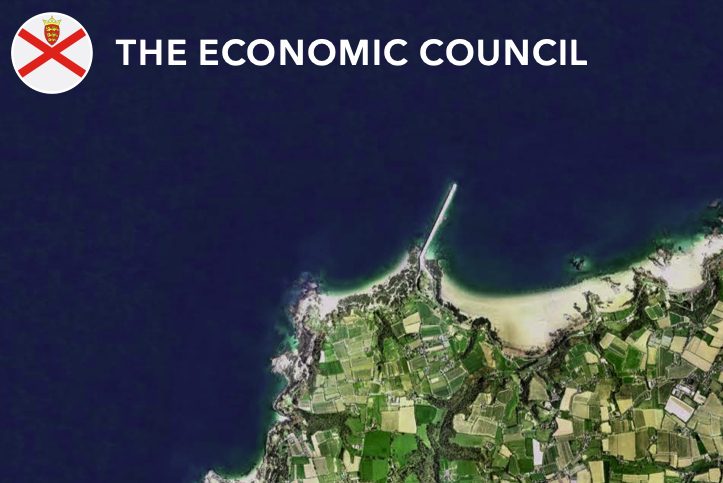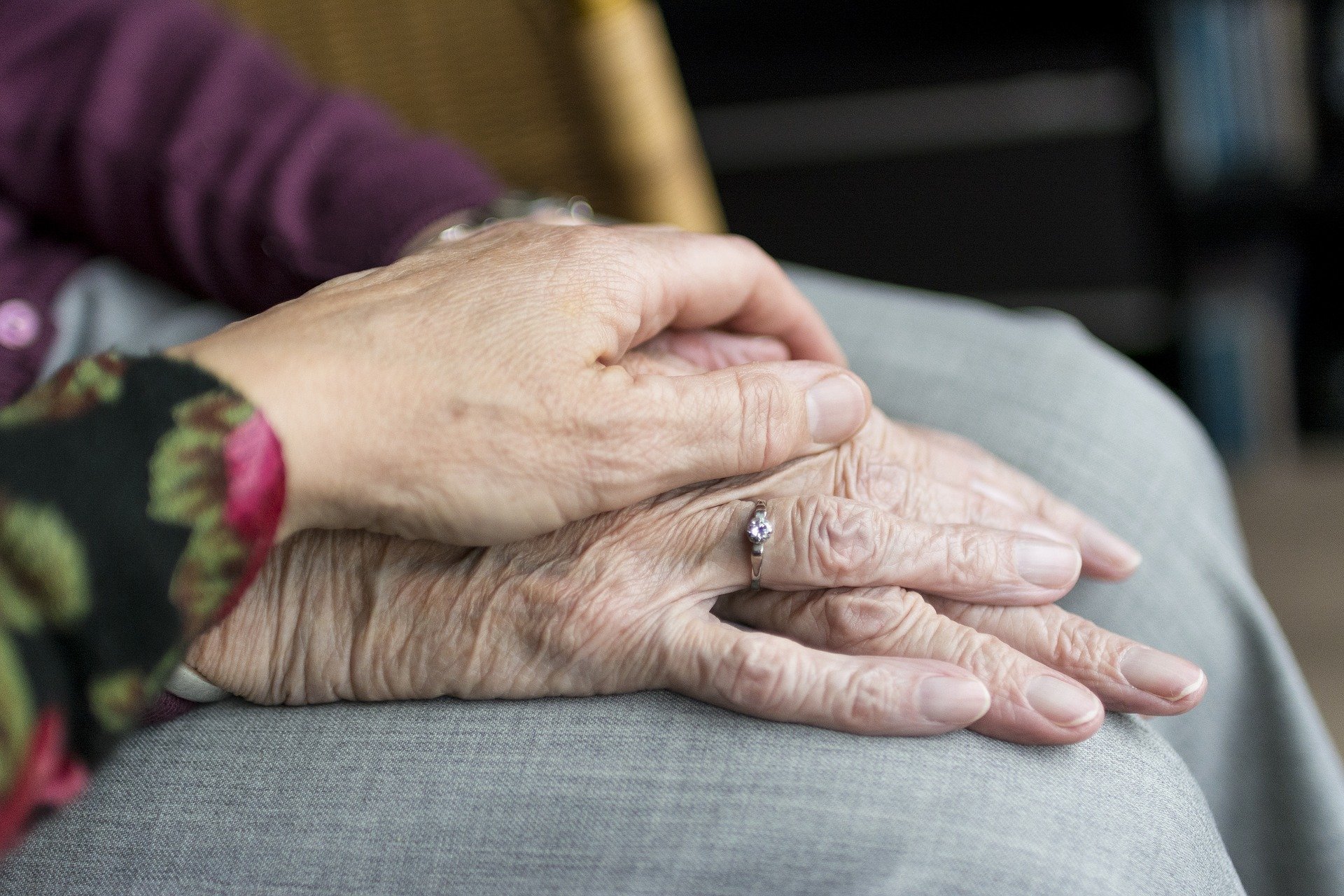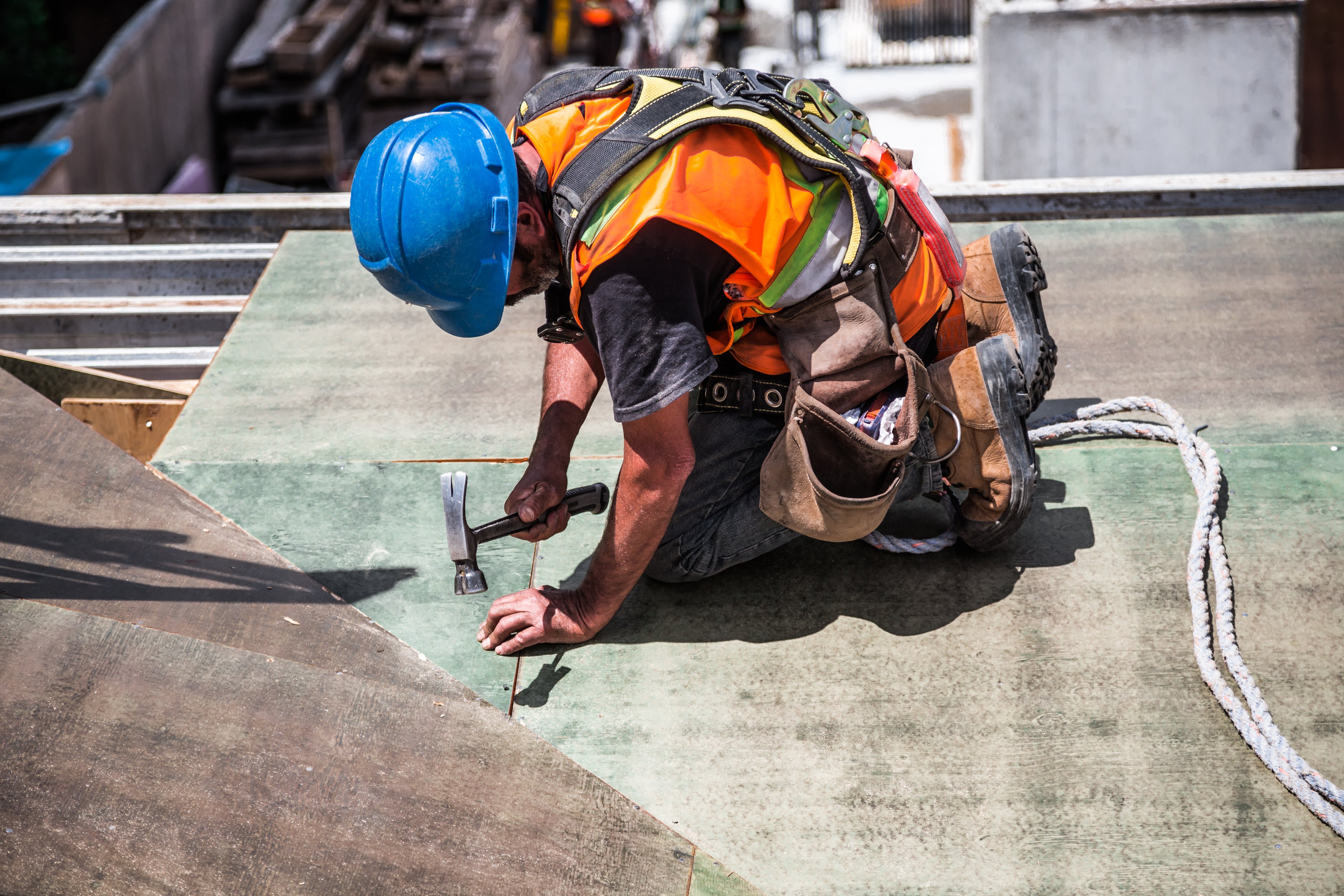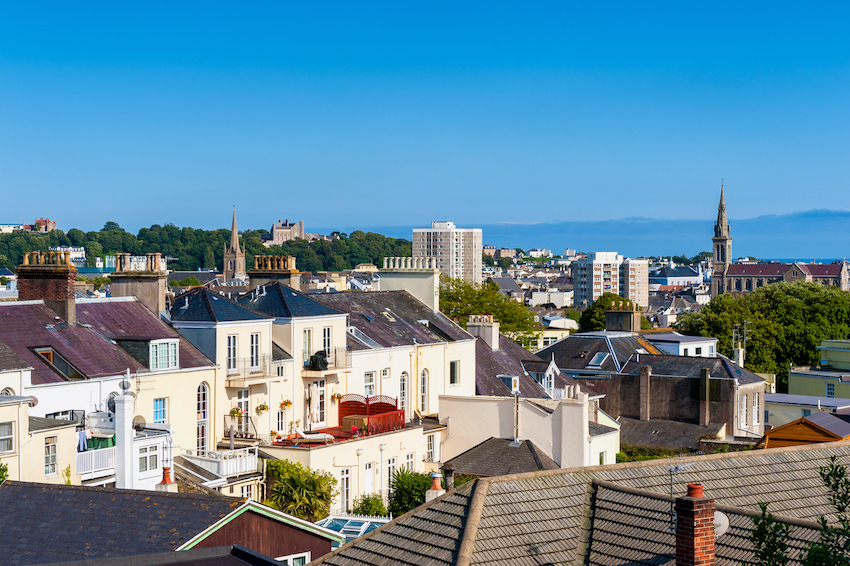


Do we need to re-evaluate the relationship between the public and private sectors on our island, if we are to regenerate our infrastructure?
This week, a group of islanders called the Economic Council has published a document called 'New Perspectives' setting out five themes which they believe should help form a long-term vision for our economy. Continuing today, Express is publishing more detail on each one of those themes...
"Every Islander is reliant on our Island’s Infrastructure and Built Environment every day whether it be through our homes, schools, offices, hospitals, ports, retail and leisure outlets, or the infrastructure that serve these assets, such as our roads, drainage and utilities.

Pictured: Part of the infrastructure strategy "caters for a growing and ageing population demographic."
Alongside the primary functional role of such assets a high-quality infrastructure has the ability to complement our special natural environment and enhance the quality of life for all Islanders.
It provides the foundation for, and has many synergies and inter-relationships with, the key drivers to renewing Jersey’s economy and as such must be considered as an equally important contributor in any strategic vision to Build Back Better.
From an economic perspective it is often referenced that the number of tower cranes you see erected is a visible sign of vibrancy and confidence in an economy with capital investment in infrastructure bringing the two-fold benefit of: -
• Providing shorter term fiscal stimulus through the construction sector with the economic multiplier effect of a pound spent in construction generating at least double that spend in the wider economy
• Delivering long term strategic assets to the Island providing an ongoing economic contribution or enhancing our quality of life and well-being.

Pictured: A regeneration strategy would also focus broadly on an infrastructure that "promotes and enables a healthier, physically active and more productive society enjoying a quality of life, well-being and national pride."
Whilst we start from a reasonable position with a number of important initiatives underway, such as the Andium Homes Decent Homes strategic plan, contributors from across all representative sectors on the Economic Council, as well as those from interested arms-length organisations, consistently identified a “fit for the future” infrastructure as fundamental to the aspiration to contribute to economic recovery and to improve the quality of life for all islanders.
The breadth and diversity of ambition across multiple strands of our economy and society reflects the importance of, and opportunity that can be created by, a bold and effective regeneration strategy.
These ambitions focus broadly on developing an infrastructure that:
• Facilitates and supports a diverse and creative economy.
• Builds resilience into our foundation industries and local businesses that ensures viable career options outside of the finance sector.
• Ensures that Arts, Culture and Innovation is embedded in a creative economy and allows islanders and visitors alike to enjoy a level of access to, and participation in, the Arts that is unparalleled as both life- enhancing and economic stimulants.
• Promotes on-island access to the highest standards of education, including tertiary and lifelong learning.
• Actively promotes our Island identity and encourages the success of the unique Jersey “brand” and local high quality/value products.
• Reflects likely structural changes to retail and the consequences for the “high street” and delivers a thriving regenerated town centre that acts as a multi-functional community hub that is both economically and culturally vibrant, resilient to change and a magnet for all target user groups (e.g. young people, families, HNWs etc).
• Delivers placemaking focussed on sustainable connectivity, accessibility and quality of environment that promotes a high quality of life that attracts and retains investment, talent and the younger elements of our community.
• Provides high quality but affordable housing that encourages retention of under 30s Islanders, promotes Jersey as an attractive option for incoming talent and reduces social inequality.
• Promotes and enables a healthier, physically active and more productive society enjoying a quality of life, well-being and national pride. The World Health Organisation Global Action Plan for Physical Activity cites the importance of creating and maintaining “Spaces and Places” in communities that promote and give safe equitable access for all in which to engage in regular physical activity, with the resultant positive impacts on health systems, the environment, economic development, community well-being and quality of life.
• Caters for a growing and ageing population demographic.
• Embraces the sustainability aspirations of the Island to be a small jurisdiction exemplar with the societal benefits and economic opportunities that vision presents.

Pictured: "At sector level the local construction industry employs over 6,000 people, 93% of whom are locally qualified, and generates 7% of the total GVA of the economy."
Whilst these aspirations represent huge opportunities, significant challenges will present themselves and the problem to address will be how to overcome these challenges and deliver the vision in a timely manner.
As part of an economic recovery strategy the critical factors in determining success or failure will be the ability to be bold and move at pace, two characteristics that Jersey has been historically poor at.
Infrastructure projects have a long gestation period and are not quick to market. By their very nature they are often impactful on many stakeholders and have historically been subject to many competing, disruptive and derailing influences.
These have ranged from the nature of parliamentary terms and general politically motivated interference, powerful but not wholly representative lobby groups, Government working in silos, a risk adverse attitude preferring to maintain the status quo over innovation, an overly protective and tortuous Planning framework and Third-Party Appeal process, to a reluctance to engage in public/private partnerships. Renewal will not be achieved if these kinds of challenges are not overcome.
At sector level the local construction industry employs over 6,000 people, 93% of whom are locally qualified, and generates 7% of the total GVA of the economy. Much work has been done by industry in partnership with local education providers to promote the sector to our youngsters as a viable career path and the circa 400 students currently engaged in the Design Engineer Construct (DEC) programme will provide highly trained future local workforce.
However, this depends on a sustainable flow of work being maintained through a clear strategic focus on the delivery of the significant opportunities that a planned capital investment programme envisioned here would allow.
On the assumption that appropriate protection of our natural environment remains, the regeneration of St Helier must become the catalyst for delivering these strategic goals and the forthcoming Interim Island Plan review must provide the transformative opportunity to develop an enabling, rather than constraining framework, focussed on challenging convention on the potential blockers to innovative and creative thinking, such as historical precedence on height, allowing greater flexibility in use class and improved connectivity and placemaking as examples.

Pictured: "the regeneration of St Helier must become the catalyst for delivering these strategic goals and the forthcoming Interim Island Plan review must provide the transformative opportunity to develop an enabling, rather than constraining framework."
There are clearly numerous opportunities to repurpose sites to achieve these goals given the appropriate conditions and whilst it is premature here to identify and consider the treatment of individual projects it is clear that substantial assets in the Government property portfolio could enable significant progress to be made in a reasonable timeframe, with the Office Rationalisation Strategy, the Our Hospital project, the redevelopment of Fort Regent and the St Helier Waterfront being obvious targets for immediate and positive action to facilitate wider economic opportunities and benefits.
As an example, the economic benefits that would be derived from the provision of an architecturally iconic cultural building at a venue to be informed by the forthcoming Cultural Strategy (e.g. the Kengo Kuma designed V&A Museum as part of the regeneration of Dundee Waterfront).
In addition to driving economic activity, both directly and indirectly, and enhancing quality of life, ambitious developments of this nature drive enormous civic pride and enhance national reputation.

Pictured: "Innovation must also be at the forefront of our thinking to provide much needed improvement to historically stagnant productivity in a sector traditionally averse to change and the perceived risk of 'new' methodologies. This will change as digital density increases in the sector and Off-Site Manufacturing and Modern Methods of Construction become the new normal."
In respect of our Carbon Neutrality aspirations it is a well reported fact that buildings are currently responsible for 39% of global energy related carbon emissions: 28% from operational emissions, from energy needed to heat, cool and power them, and the remaining 11% from materials and construction.
Given that we have less than a decade to meet our stated target and acknowledging the extended project gestation periods (e.g. a 200 unit Affordable Housing scheme at Feasibility Stage now is unlikely to be fully occupied before 2024) immediate action is required to change thinking, either by carrot (incentives) or stick (enhanced Building Regulations requirements) as in the current commercial environment the added capital cost of delivering more sustainable buildings will ensure the status quo remains, without direct policy intervention.
We must create awareness and help building owners minimise the carbon footprint across the lifetime of their buildings. Methodologies like Life Cycle Assessments (LCA) linked to innovation and improved processes, such as Building Information Models (BIM), can be used to calculate, track and report embodied carbon and can accelerate sustainable decision making across the whole value chain for maximum impact in developing low carbon alternative solutions for the market.
Innovation must also be at the forefront of our thinking to provide much needed improvement to historically stagnant productivity in a sector traditionally averse to change and the perceived risk of “new” methodologies. This will change as digital density increases in the sector and Off-Site Manufacturing and Modern Methods of Construction become the new normal.
The Council sees these goals as Government enabled but delivered through collaborative engagement with multiple partners.
This vision of the provision of a high-quality life enhancing, multifaceted infrastructure delivered through the extensive regeneration of our built environment will require significant capital investment and sole funding from Government is an unrealistic expectation.
As such the development of public/private partnership funding will be imperative based on creative, flexible, nimble and risk balance delivery models that encourage and give confidence to private sector investors.
The question should not be “can we afford” but “can we not afford” to Build Back Better?"
Read the full report here.
Why tech will change our economy forever